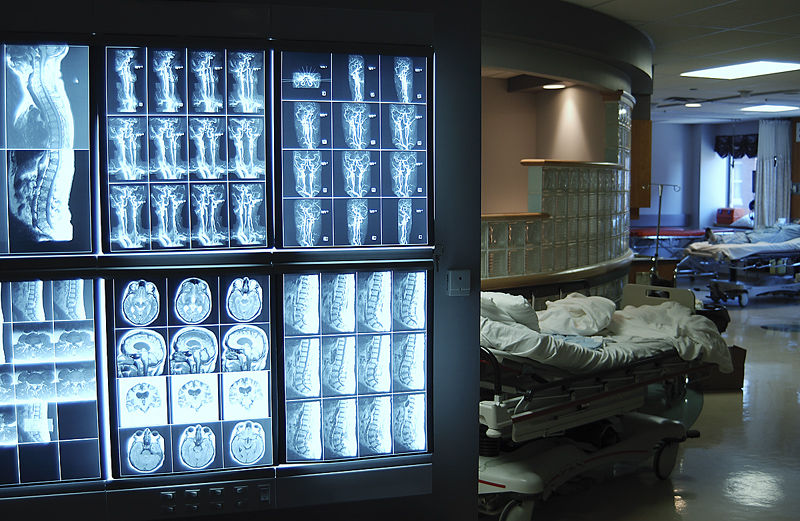
TUESDAY, April 23 (HealthDay News) — Valproate — an epilepsy drug already shown to increase the risk of birth defects and thinking problems in offspring whose mothers used the drug during pregnancy — may also significantly increase the risk of having a child with autism or an autism spectrum disorder, according to new research.
The study of more than 650,000 children born between 1996 and 2006 in Denmark found that the risk of having any type of autism spectrum disorder was increased nearly threefold, while the risk of developing childhood autism was raised over fourfold in certain mothers took valproate during pregnancy.
Autism spectrum disorders are a group of developmental brain disorders that hinder a child’s ability to communicate and interact socially. They range from severe cases of “classic” autism to the relatively mild form called Asperger’s syndrome and other related conditions.
In the study, autism spectrum disorders included childhood autism (autistic disorder), Asperger’s syndrome, atypical autism, and other or unspecified pervasive developmental disorders.
“The absolute risk of being diagnosed with an autism spectrum disorder was 4.4 percent in children exposed to valproate compared to 1.5 percent in children not exposed to valproate. The absolute risk of being diagnosed with childhood autism was 2.5 percent in children exposed to valproate compared to 0.5 percent in children not exposed to valproate,” said lead study author Jakob Christensen, a consultant neurologist at Aarhus University Hospital in Aarhus, Denmark.
However, Christensen was quick to note that most women who took valproate during pregnancy did not have children with autism or autism spectrum disorders.
Results of the study appear in the April 24 issue of the Journal of the American Medical Association.
Valproate is a medication used to control seizures. It is also used to treat people with migraines and those with bipolar disorder, according to the author of an accompanying journal editorial, Dr. Kimford Meador, a professor of neurology at Emory University in Atlanta.
But, the medication has been linked to birth defects and to delayed mental development, according to background information in the study. Meador said that the risk of birth defects has been associated with first trimester use of valproate, whereas the risk of mental delays and the risk of autism spectrum disorders more likely stems from the use of the drug during the third trimester of pregnancy.
In any case, he added, a woman at higher risk would also need to have a genetic susceptibility that allows the drug to cause problems. That’s why not everyone who takes valproate in pregnancy will have a child with birth defects or other problems.
Still, Meador said the number of women taking valproate is too high. National estimates suggest that about 926,000 prescriptions were written annually for valproate for women in their childbearing years. There is a small subset of women who can only maintain good seizure control on valproate, explained Meador, but even then, the women should be given the lowest possible dose. He said the higher the dose of the drug, the greater the risk of causing problems.
What’s most important is that women understand the risks and benefits of any drug they’re being given, Meador said.
“This is not a minor thing. Doctors should tell women what the risks are. And, this shouldn’t be something you just think about when you’re planning a pregnancy, because about half of all pregnancies in the U.S. are unplanned. The time to talk about medications is before pregnancy, and medications should be used in the lowest dose possible to control seizures,” said Meador, who added, “My approach is to start with other drugs first.”
However, study author Christensen said, “A number of women of childbearing potential may only become seizure-free when treated with valproate. Seizures during pregnancy may have serious effects on both the mother and the unborn child. Therefore, the doctors and pregnant women will have to balance the risk associated with seizures during pregnancy with the risk of congenital malformations and other potential adverse outcomes in the exposed children. In addition, not all pregnancies are planned and therefore, some children may unintentionally be exposed to valproate.”
He noted that the use of valproate in women of childbearing years has gone down in recent years, but because of the reasons he mentioned, there will likely always be some women in their childbearing years taking the drug.
Both Christensen and Meador said they believe that valproate might increase the risk of autism and autism spectrum disorders by altering the development of nerve cells in the brain. The drug doesn’t necessarily destroy the developing cells, but changes them in a way that makes it harder for the cells to work and communicate with each other the way they’re supposed to.
Although the study tied the use of valproate in pregnancy to higher autism risk in children, it did not establish a cause-and-effect relationship.
More information
Learn more about the potential risks of valproate from the U.S. Food and Drug Administration.

